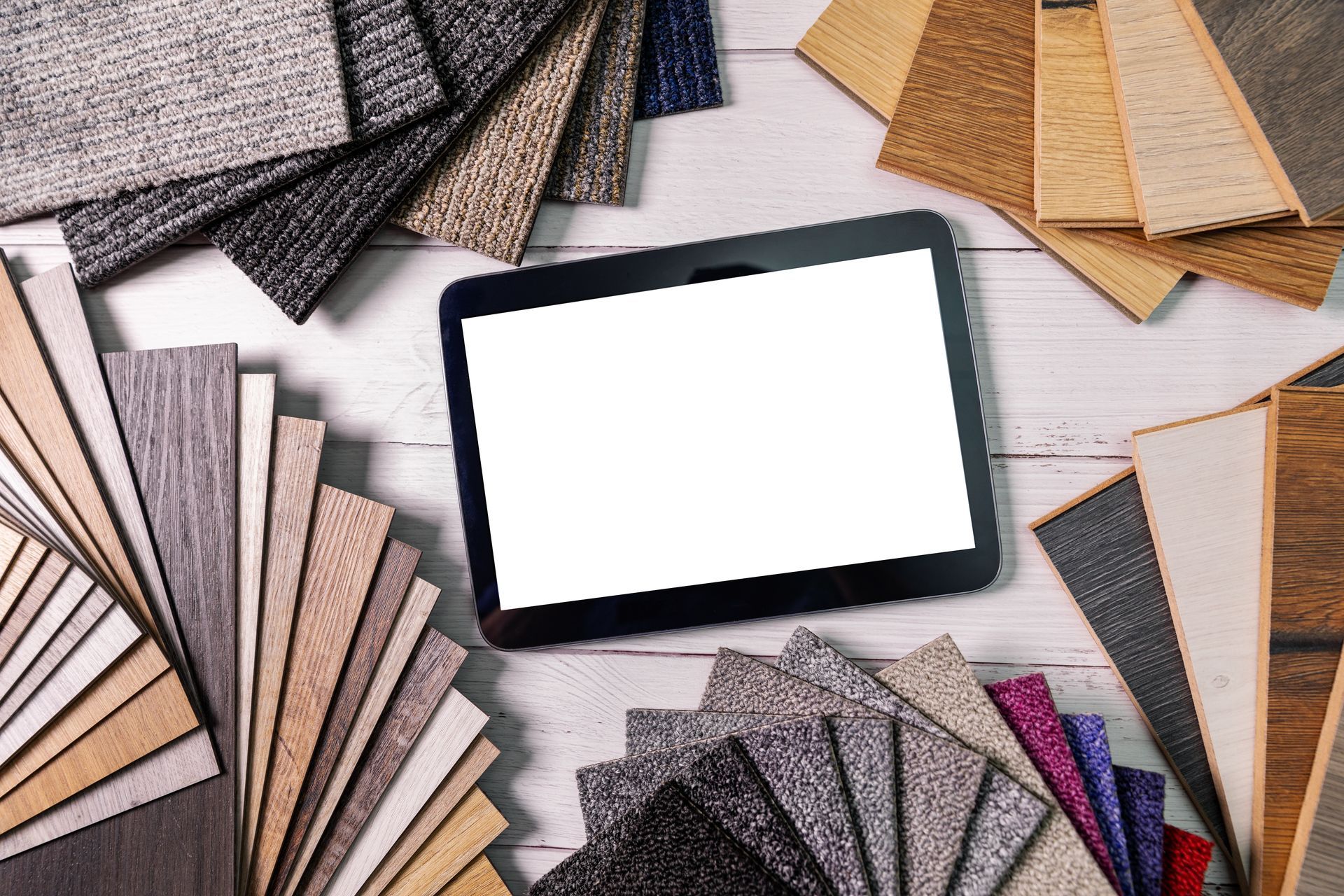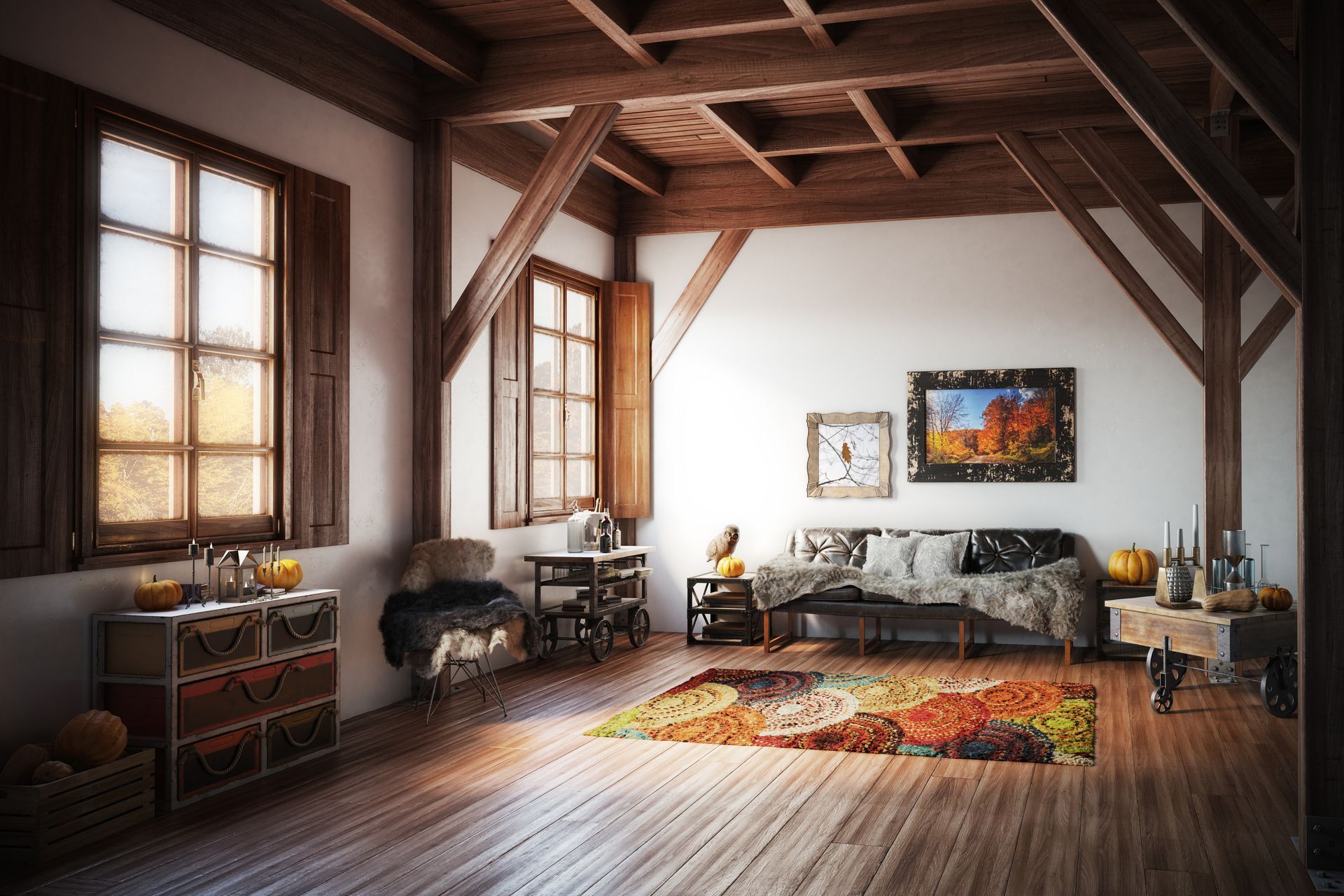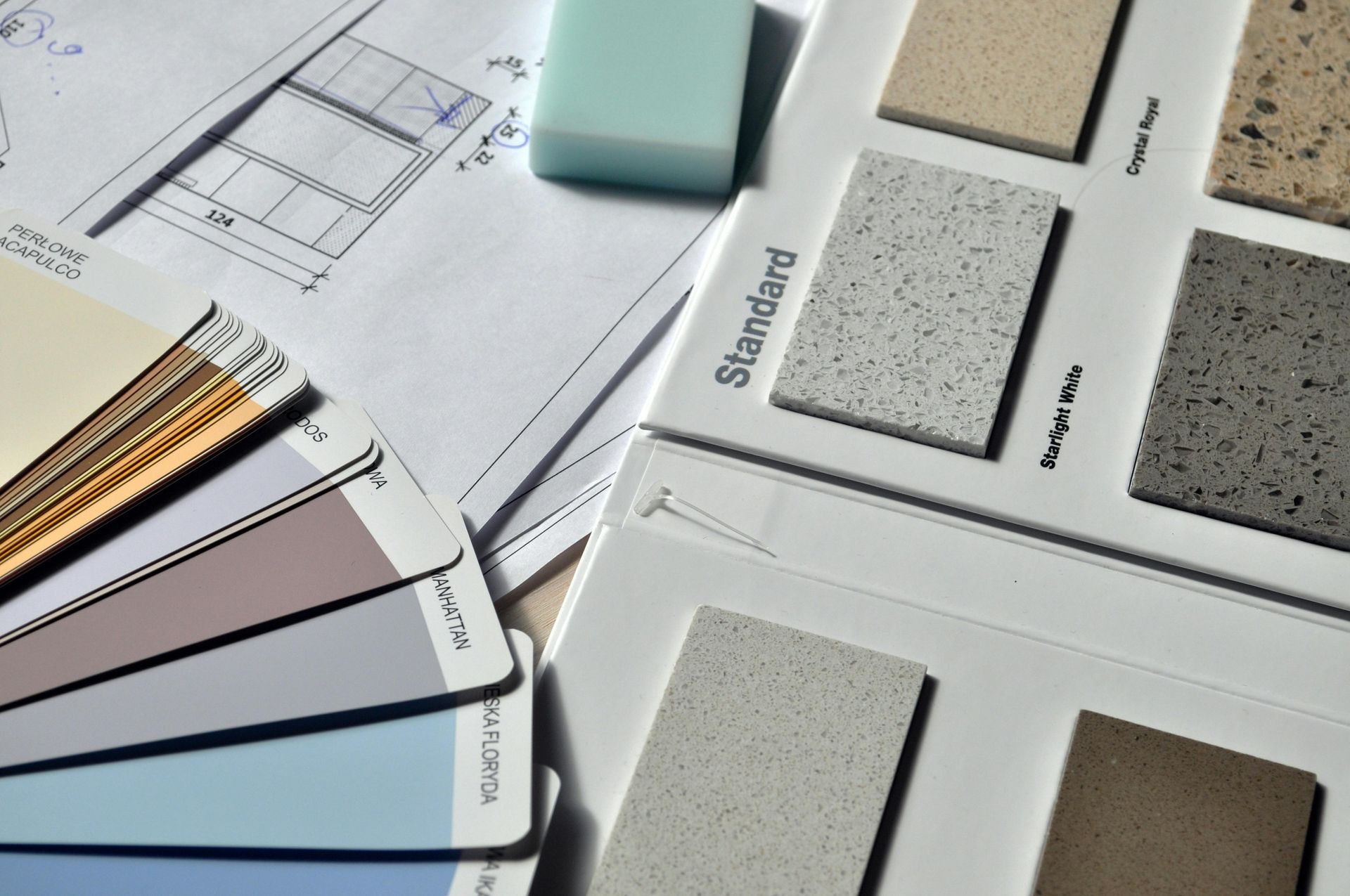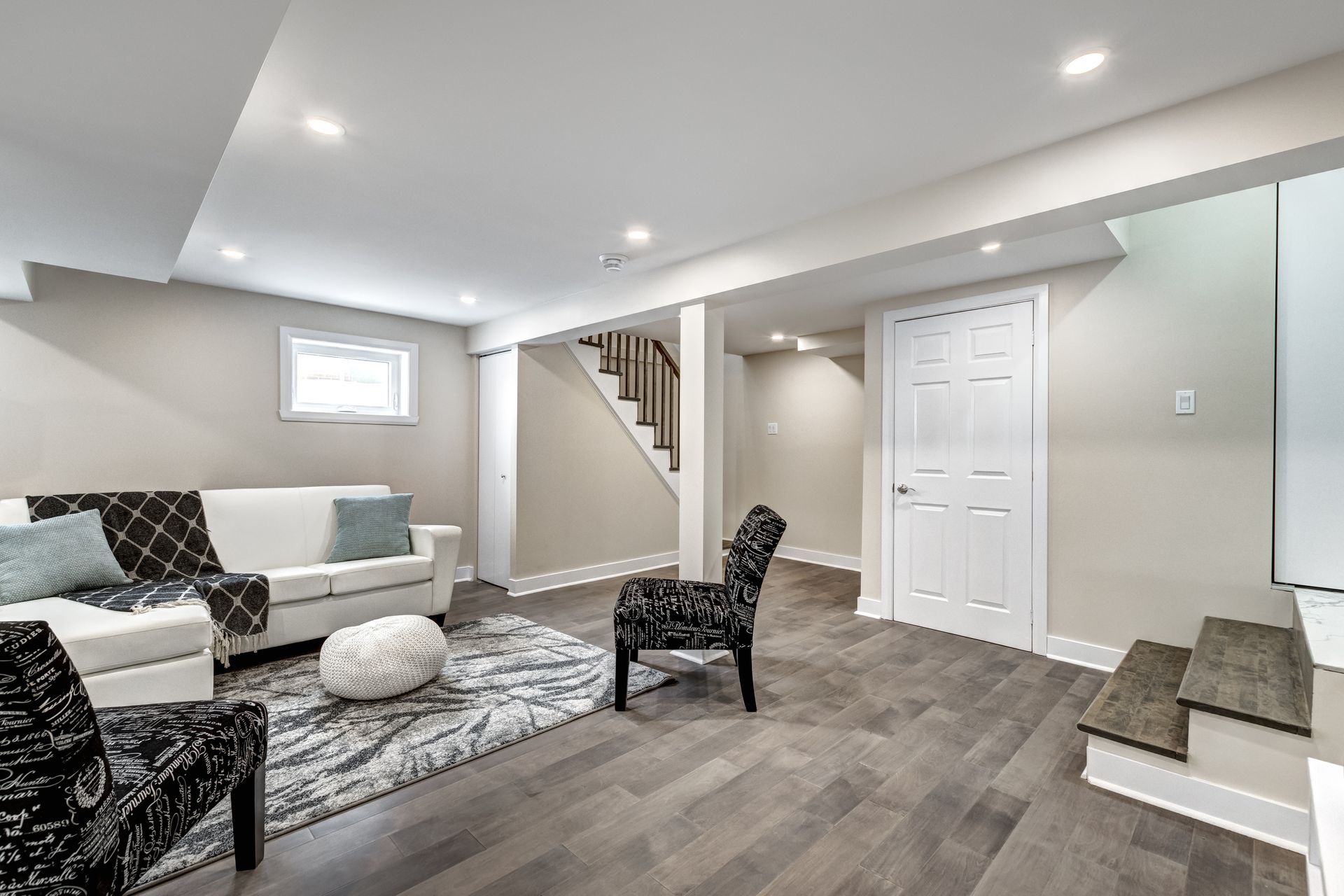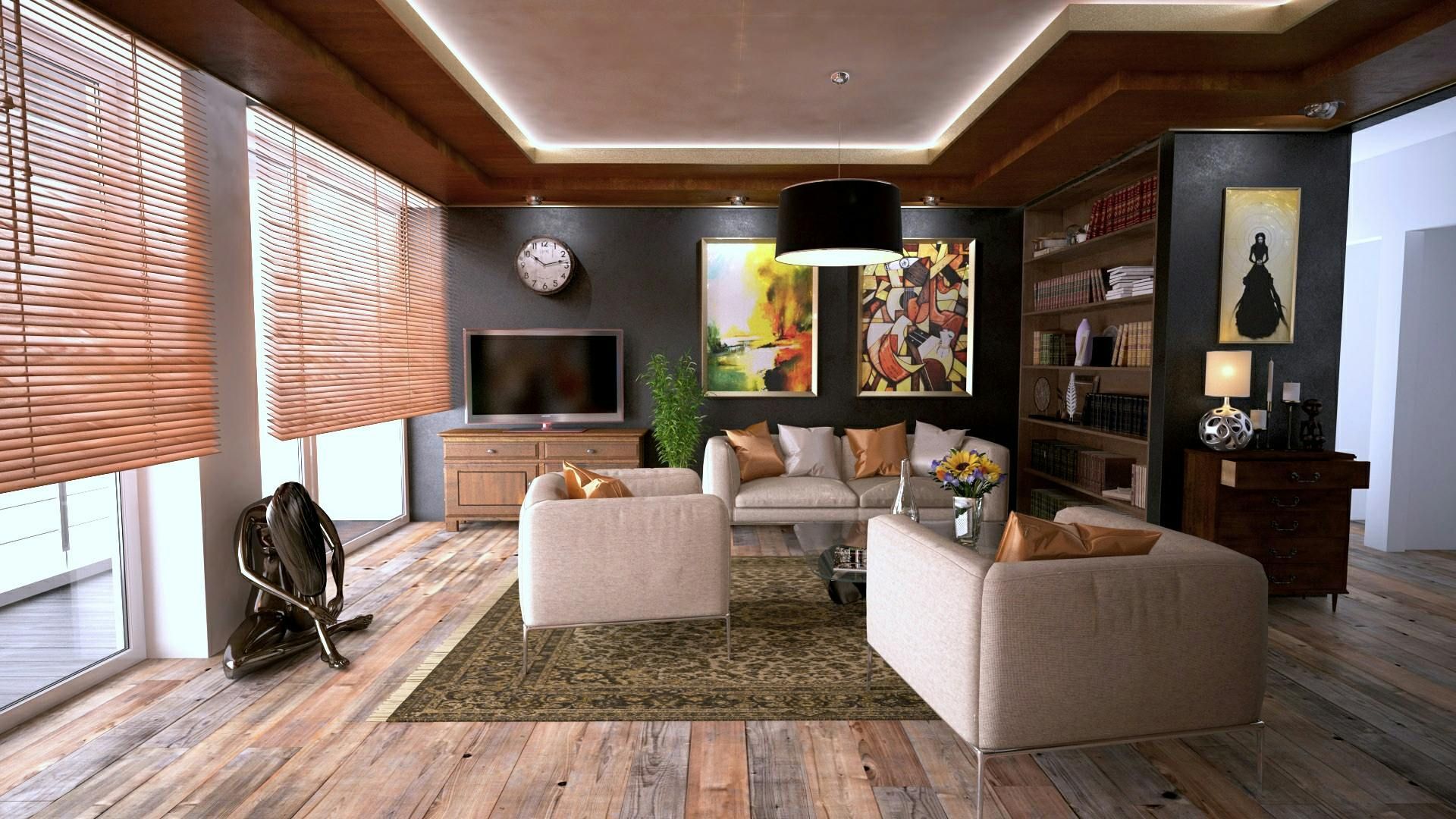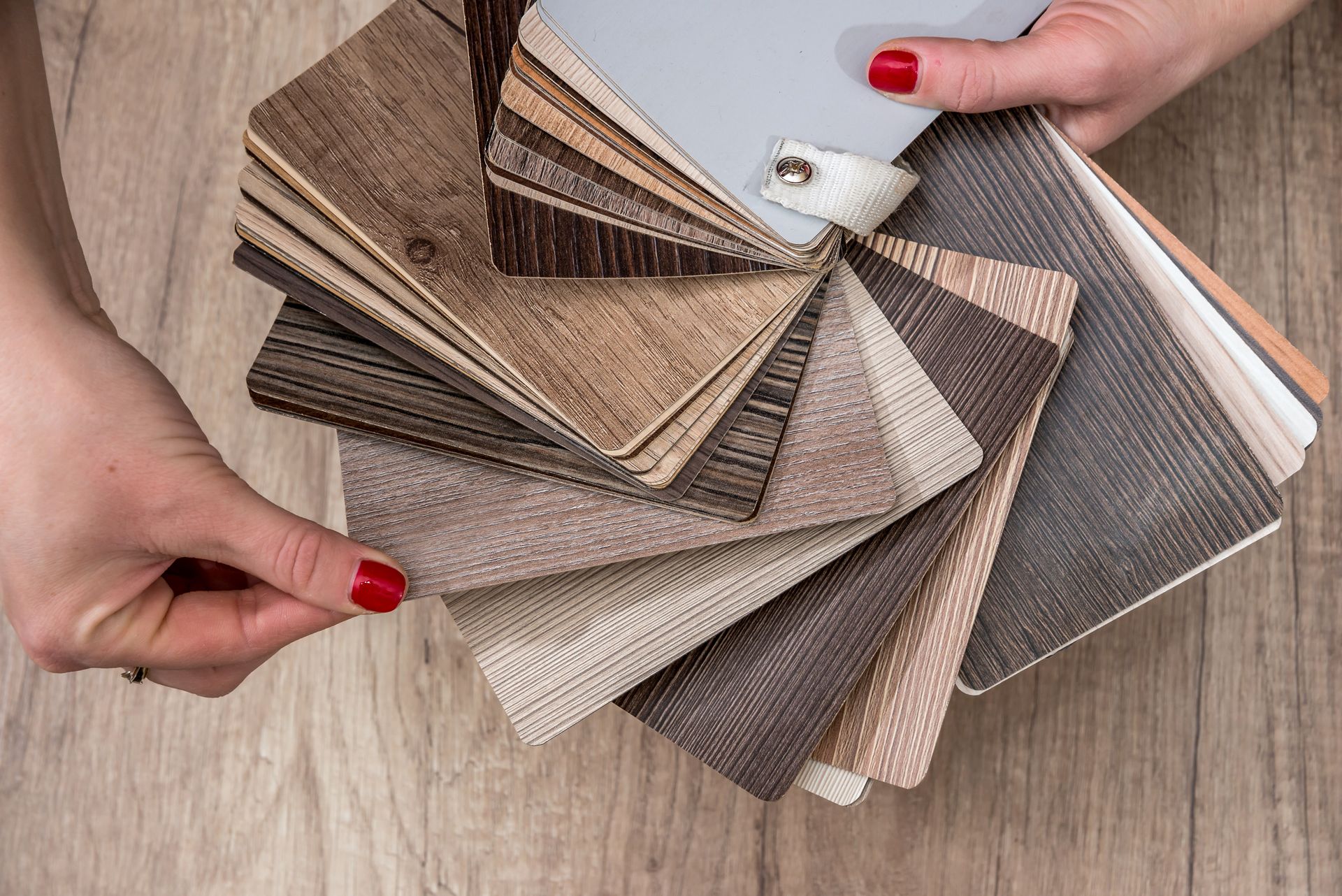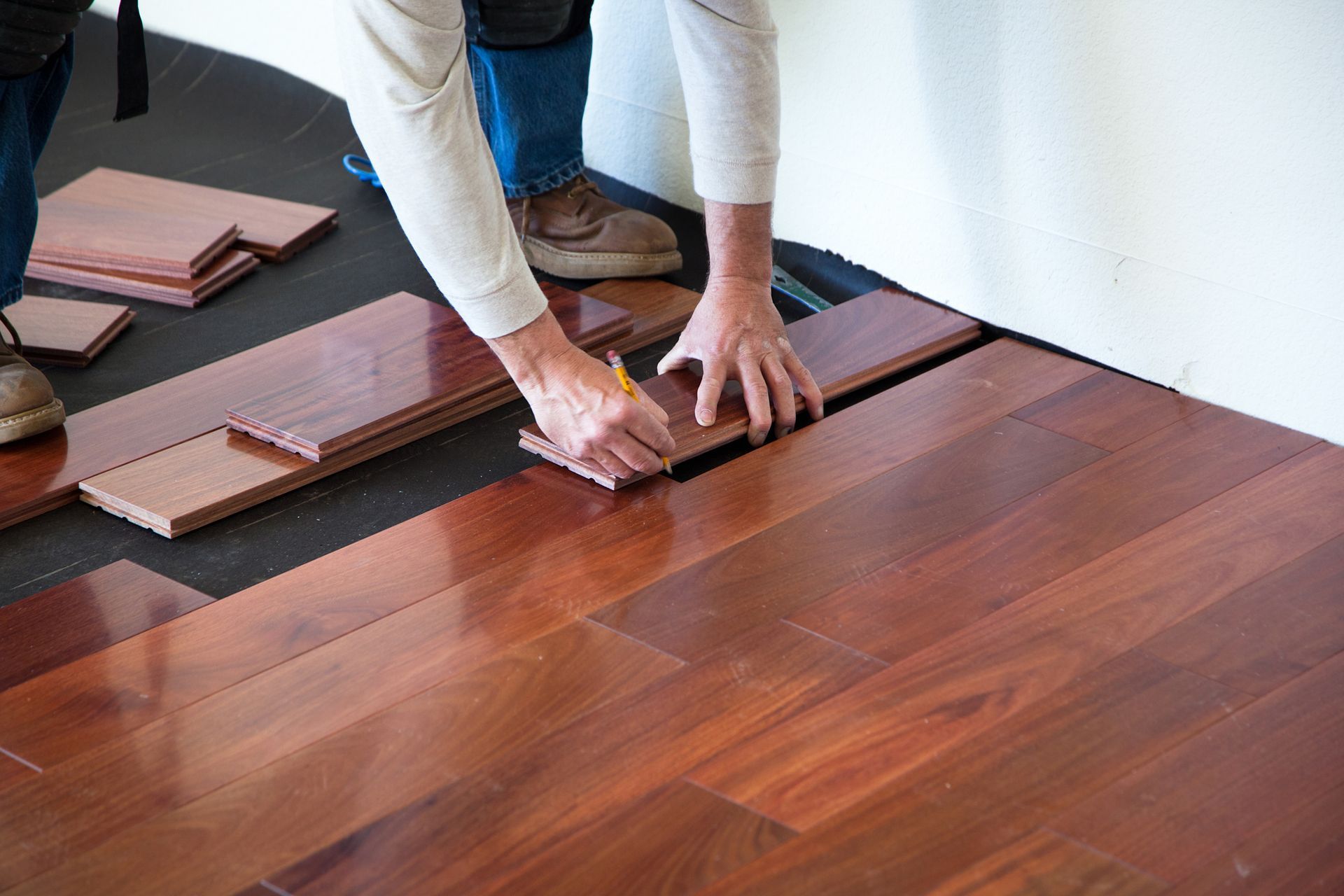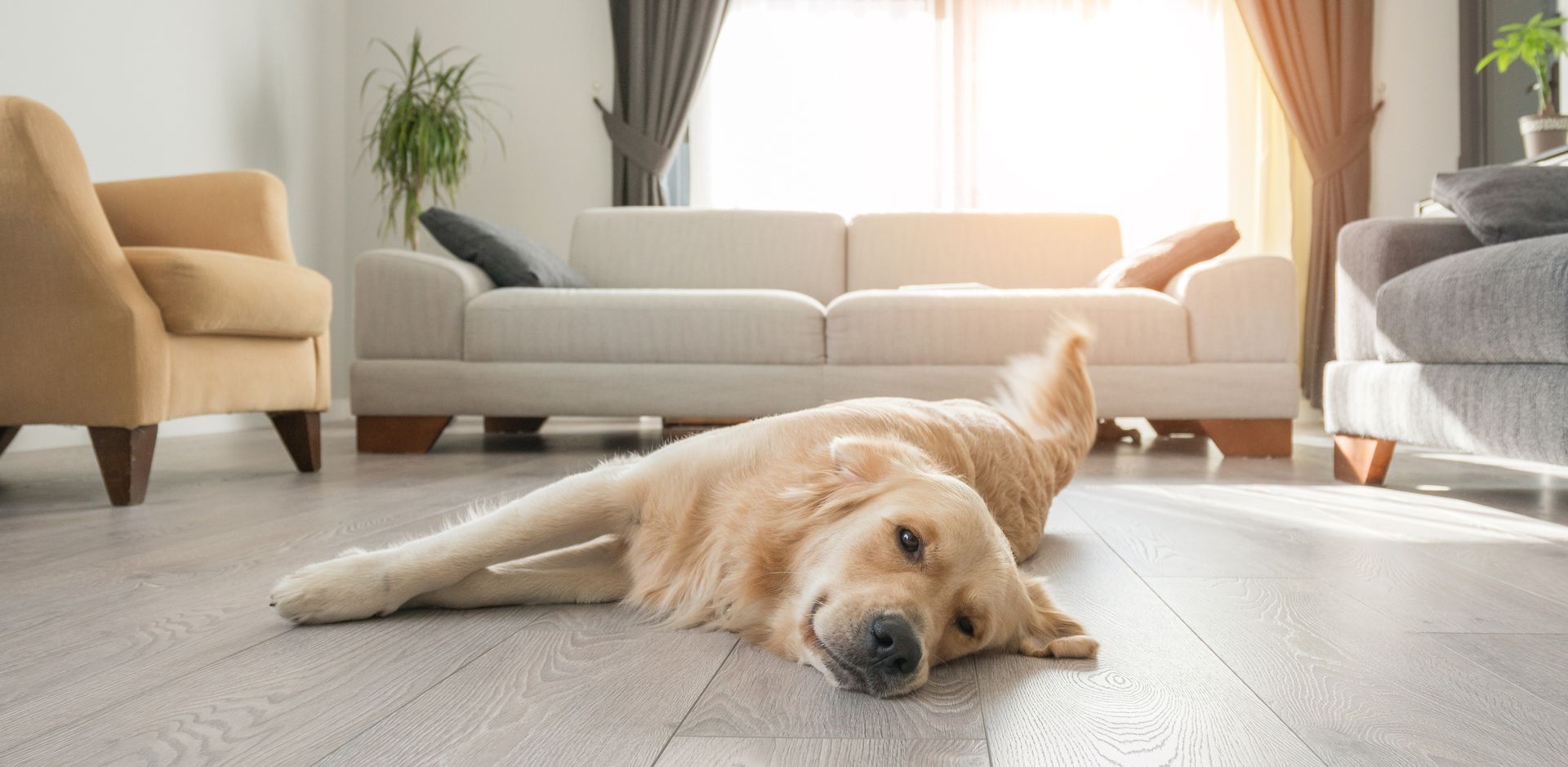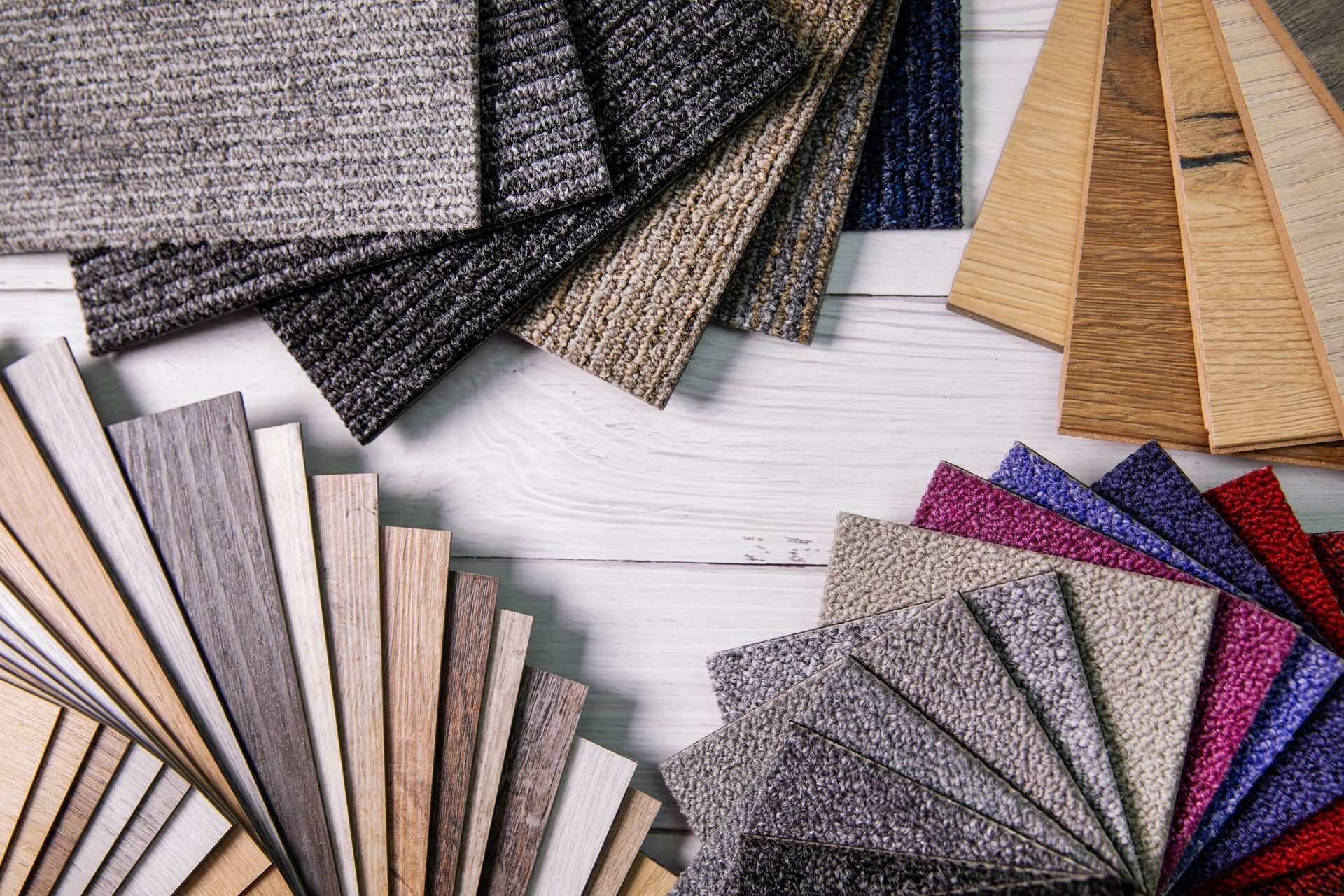
Transform Your Home with the Perfect Hamilton Flooring
Choosing the right flooring material for your home is more than a simple aesthetic decision—it impacts comfort, maintenance, and even the value of your property. With so many options available, how do you decide which one is perfect for each room?
This blog dives deep into some of the most popular flooring materials, guiding you through their pros, cons, and best uses to help homeowners like you make an informed choice on what
Hamilton flooring best suits your needs.
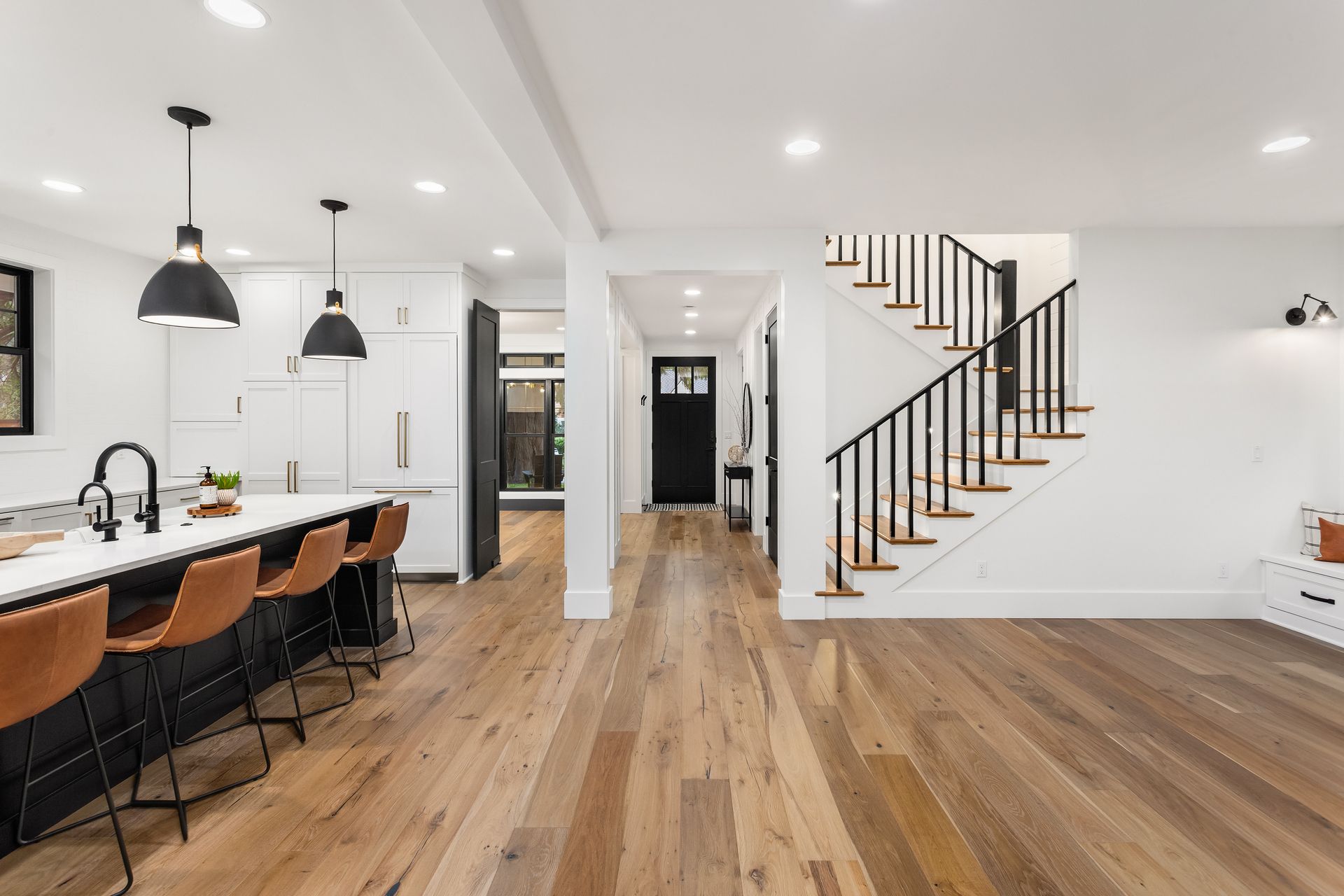
The Importance of Choosing the Right Flooring Material
Your flooring sets the tone for your entire home. It’s the first thing people see when they walk in and the last thing they notice as they leave. Not only does it need to look good, but it also needs to withstand daily wear and tear.
Your choice of flooring material affects your home’s ambiance, maintenance needs, and even its resale value. Thus, choosing the right flooring material is crucial for creating a comfortable and stylish living environment.
Understanding Your Home's Needs
Different rooms have different requirements. The flooring that works in your kitchen might not be ideal for your bedroom or bathroom. Understanding what each room needs in terms of durability, comfort, and maintenance can help you make the best decision for your home.
Considerations for Different Rooms
- Living Room and Bedrooms
- These areas are generally low-moisture zones, so comfort and aesthetics are key.
- Kitchen and Bathroom
- High-traffic and moisture-prone areas require durable, water-resistant materials.
- Basement
- Often subject to dampness, you'll need materials that can withstand a bit of humidity.
Popular Flooring Materials
Here, we break down some of the most popular flooring materials, discussing their pros and cons as well as their best uses.
Hardwood
Hardwood floors are timeless and add warmth and elegance to any home. They come in various species like oak, maple, and cherry.
Pros
- Long-lasting and durable.
- Adds significant value to your home.
- Can be sanded and refinished multiple times.
Cons
- Expensive compared to other options.
- Susceptible to scratches and dents.
- Not ideal for high-moisture areas.
Best Uses
Hardwood is perfect for living rooms, dining rooms, and bedrooms. Its luxurious look makes it a popular choice for areas where you entertain guests.
Laminate
Laminate flooring mimics the look of hardwood but comes at a fraction of the cost.
Pros
- Cost-effective and budget-friendly.
- Easy to install, often as a DIY project.
- Resistant to scratches and wear.
Cons
- Can’t be refinished; once damaged, it needs replacing.
- Not as durable as hardwood.
- May look artificial compared to natural wood.
Best Uses
Ideal for living rooms, bedrooms, and hallways. Laminate is also a good option for homeowners looking for an affordable yet stylish flooring solution.
Tile
Tile flooring is incredibly versatile and comes in a plethora of styles, colors, and materials, including ceramic, porcelain, and stone.
Pros
- Highly durable and water-resistant.
- Easy to clean and maintain.
- Available in a wide range of designs.
Cons
- Hard and cold underfoot.
- Can be slippery when wet.
- Grout lines require regular cleaning.
Best Uses
Best suited for kitchens, bathrooms, and entryways due to its durability and water resistance.
Vinyl
Vinyl flooring has come a long way and now offers a variety of designs that mimic natural materials.
Pros
- Water-resistant and ideal for high-moisture areas.
- Comfortable underfoot and reduces noise.
- Affordable and easy to install.
Cons
- Can be prone to dents and scratches.
- May fade in direct sunlight.
- Not as durable as tile or hardwood.
Best Uses
Great for kitchens, bathrooms, and basements where water resistance is essential.
Carpet
Carpet adds warmth and comfort to any room, making it a popular choice for bedrooms and living areas.
Pros
- Soft and comfortable underfoot.
- Reduces noise and adds insulation.
- Available in a variety of colors and textures.
Cons
- Prone to stains and requires regular cleaning.
- Can harbor allergens and dust.
- Not ideal for high-moisture areas.
Best Uses
Perfect for bedrooms, living rooms, and any area where comfort and warmth are a priority.
Factors to Consider Before Making Your Decision
Before you settle on a flooring material, you need to consider several factors to ensure you make the best choice for your specific needs.
Lifestyle
Think about your daily life. Do you have kids or pets? Are you always hosting parties? These factors will influence the durability and maintenance required for your flooring.
Examples
- Kids and Pets: Consider durable and stain-resistant materials like laminate or vinyl.
- Entertaining: Opt for elegant and easy-to-clean options like hardwood or tile.
Budget
Flooring materials vary greatly in cost. Be sure to factor in not only the cost of the material but also the installation and long-term maintenance costs.
Examples
- Limited Budget: Laminate and vinyl are cost-effective options.
- Flexible Budget: Hardwood and high-end tiles offer longevity and luxury.
Maintenance
Different materials require different levels of upkeep. Consider how much time and effort you’re willing to invest in maintaining your floors.
Examples
- Low Maintenance: Vinyl and tile are easy to clean and maintain.
- High Maintenance: Hardwood and carpet require more effort to keep in top shape.
Aesthetic Preferences
Your flooring should complement your home’s style and your personal taste. Whether you prefer a modern, rustic, or traditional look, there’s a flooring material out there for you.
Examples
- Modern: Sleek tiles or contemporary vinyl designs.
- Traditional: Classic hardwood or plush carpet.
Tips for Choosing the Best Flooring for Your Home
Making the right choice for your flooring can be daunting. Here are some tips to guide you through the process.
Seek Professional Advice
Consulting with professionals can save you time and money in the long run. Experts can offer advice based on your specific needs and help you avoid costly mistakes.
Examples
- Interior Designers: They can help you choose materials that align with your home’s design.
- Flooring Specialists: Professionals from places like Dobi Design Centre Co. can recommend the best materials for your lifestyle and budget.
Research Local Climate and Environmental Conditions
The climate in your area can affect the longevity and performance of your flooring. For instance, high humidity can be detrimental to hardwood floors.
Examples
- Humid Areas: Opt for tile or vinyl, which can withstand moisture.
- Dry Climates: Hardwood can thrive in less humid conditions.
Consider Long-Term Durability
Think about the long-term implications of your choice. Durable materials might have a higher upfront cost but can save you money on replacements and repairs down the line.
Examples
- Durable Choices: Tile and hardwood are known for their longevity.
- Short-Term Solutions: Laminate and carpet might need more frequent replacements.
Making an Informed Decision for Your Home
Choosing the right flooring material is a critical decision that affects your home’s comfort, aesthetics, and value. By understanding the pros and cons of each option and considering your specific needs, you can make an informed choice that you’ll be happy with for years to come.
Remember, you don’t have to make this decision alone.
Contact us at Dobi Design Centre Co. for professional advice and quality flooring installations in Hamilton. Our experts are here to help you every step of the way.
Found this article interesting? Why not share it?

